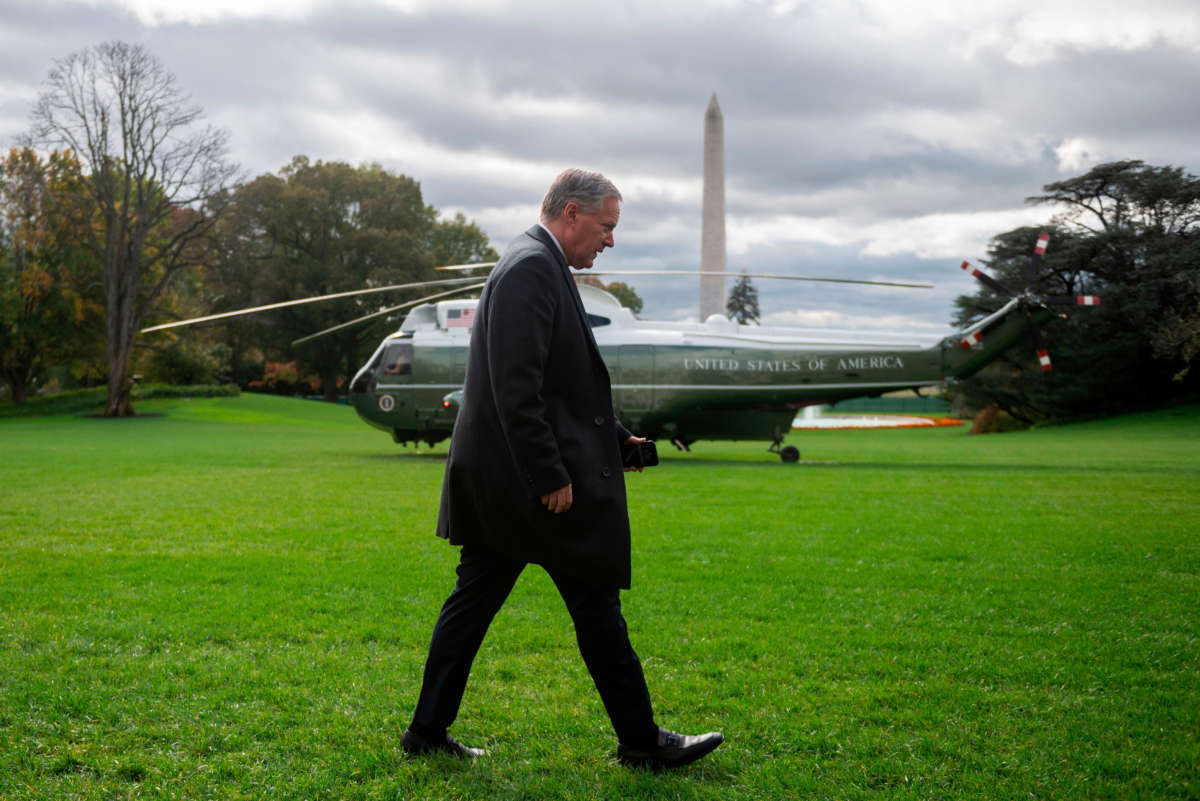Mark Meadows, the former chief of staff for the Trump administration, has agreed to provide documents and closed-door testimony to the select committee investigating the January 6 attack on the United States Capitol building.
Meadows was subpoenaed in September to provide documents and to testify to the commission. At the onset of that subpoena order, it appeared that Meadows would be cooperative. But by the end of October, Meadows was refusing to testify and to provide the materials that the commission had asked for, justifying his defiance on the basis that Trump’s purported executive privilege limited him from discussing the final weeks of the former president’s tenure in office.
As a result of his reluctance to cooperate, Meadows faced the possibility of being charged with contempt of Congress, much like Trump’s former adviser Steve Bannon. This past weekend, January 6 commission member Rep. Adam Schiff (D-California) said that the panel would soon decide whether they would vote on issuing such charges to Meadows as well.
It’s unclear whether it was the threat of contempt charges that motivated Meadows to become more cooperative. But regardless of why he’s changed his mind, Meadows now appears to be sharing documents with the commission and has agreed to testify.
“Mr. Meadows has been engaging with the Select Committee through his attorney,” a statement from commission chair Rep. Bennie Thompson (D-Mississippi) said. “He has produced records to the committee and will soon appear for an initial deposition.”
Meadows could still face consequences if he has yet another change of heart, Thompson warned:
The Select Committee expects all witnesses, including Mr. Meadows, to provide all information requested and that the Select Committee is lawfully entitled to receive. The committee will continue to assess his degree of compliance with our subpoena after the deposition.
The details surrounding the agreement made between Meadows and the January 6 commission haven’t yet been made public. A statement from Meadows’s lawyer, George Terwilliger, suggested that Meadows isn’t planning to provide all of the information he has access to.
Meadows and his lawyers will “continue to work with the Select Committee and its staff to see if we can reach an accommodation that does not require Mr. Meadows to waive Executive Privilege or to forfeit the long-standing position that senior White House aides cannot be compelled to testify before Congress,” Terwilliger said.
Trump has asserted that his executive privilege as a former president means that his former aides cannot be compelled to testify if he doesn’t want them to, a position that most legal experts say rests on questionable legal ground. According to the letter of the law, only a sitting president can assert executive privilege.
A former president can sue to keep their records private, which Trump has done. But earlier this month, a federal judge ruled that Trump’s assertions of privilege don’t hold up in court.
“[Trump’s] position that he may override the express will of the executive branch appears to be premised on the notion that his executive power ‘exists in perpetuity,'” opined Judge Tanya S. Chutkan of the U.S. District Court for the District of Columbia. “But Presidents are not kings, and Plaintiff is not President. He retains the right to assert that his records are privileged, but the incumbent President ‘is not constitutionally obliged to honor’ that assertion.”
Trump has appealed Chutkan’s order for the National Archives to hand over documents to the commission. Arguments for that appeal were heard by a three-judge panel on Tuesday, during which all three of the judges appeared skeptical of the former president’s legal rationale for why his documents and communications records should remain private.
“This all boils down to who decides,” Judge Ketanji Brown Jackson said during those hearings. “Who decides when it is in the best interest of the United States to disclose presidential records? Is it the current occupant of the White House or the former?”
Join us in defending the truth before it’s too late
The future of independent journalism is uncertain, and the consequences of losing it are too grave to ignore. To ensure Truthout remains safe, strong, and free, we need to raise $31,000 in the next 48 hours. Every dollar raised goes directly toward the costs of producing news you can trust.
Please give what you can — because by supporting us with a tax-deductible donation, you’re not just preserving a source of news, you’re helping to safeguard what’s left of our democracy.
